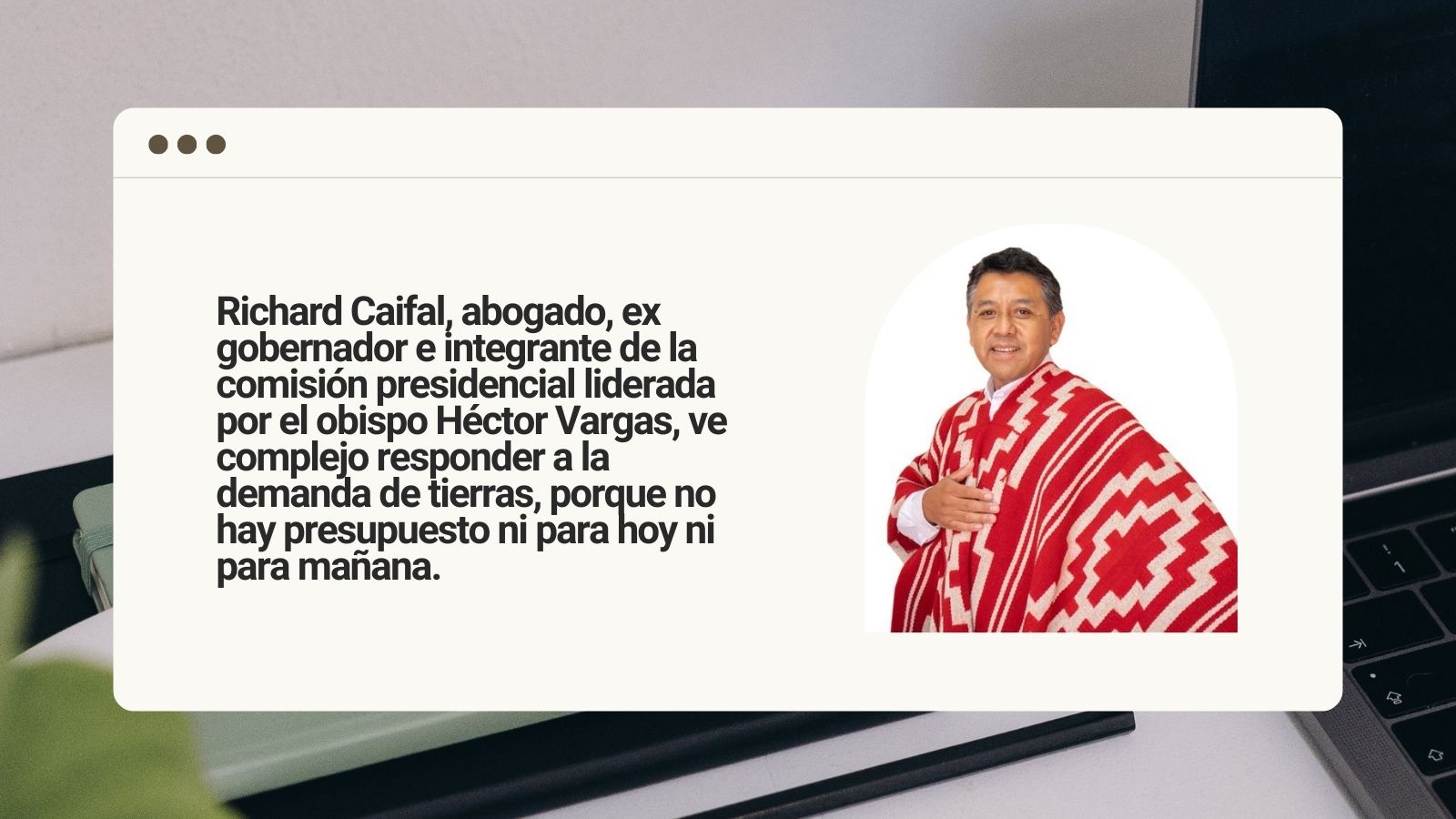On July 12, the Official Gazette published Decree No. 14 from the Ministry of the General Secretariat of the Presidency, which establishes the Commission for Peace and Understanding. Its purpose will be to advise the President of the Republic in building and consolidating a long-term solution to the territorial conflict in the regions of Biobío, La Araucanía, Los Ríos, and Los Lagos, by gathering information and fostering a dialogue process among the key stakeholders in these territories.
This is the fourth commission created to address the historical land claims. Previous ones included the Commission for Historical Truth and New Deal during Ricardo Lagos' government, followed by the one led by Bishop Héctor Vargas in Michelle Bachelet's second administration, which produced recommendations, and the National Agreement for Development and Peace in La Araucanía, led by former minister Alfredo Moreno during Sebastián Piñera's second government.
Regarding this, Richard Caifal, a lawyer from the Universidad Mayor de Temuco, former governor of Cautín Province, and current executive director of the Rakizuam Foundation, an indigenous studies center, explained the potential scenario, also highlighting the origins of this issue.
Caifal, who was also part of the presidential commission led by Bishop Héctor Vargas—aimed at developing a roadmap to address and resolve the main challenges of the area by incorporating the perspectives of all involved sectors—recalled that this issue dates back to 1860, with what is known as the Pacification of Araucanía. "Essentially, there was an occupation of the territory, and prior to that, historians document the Treaty of Tapihue in 1825, which established the Biobío River as the border. When the occupation occurred in the 1860s, a military confrontation ensued, and the state proceeded to distribute lands to foreign settlers, nationals, and also the so-called land grants (títulos de merced) to a group of people led by a lonco (Mapuche leader). This process ended in 1930."
Later, various legislations emerged, and in 1980, the military regime enacted Decree Law 2,568, granting individual titles to those who cultivated, worked, and lived on those lands. Subsequently, in 1993, the Indigenous Law introduced a unique provision enabling the purchase of lands, which was done collectively—contrary to reality, as individual titles existed.
Regarding the scenario with this new commission, Caifal noted that a major problem arises because it proposes surveying Mapuche lands. First, it excludes the other nine indigenous peoples, making this working group more limited compared to previous ones. This means the issue remains unresolved, as ancestral lands imply those south of the Biobío River. The Treaty of Tapihue, which was commercial and military, stated that Mapuche territory begins south of the river—lands with immemorial use. The former Constitutional Convention also framed it this way when discussing ancestral lands, and Machi Linconao went further by claiming the Metropolitan Region as well.
He added thata study presented on June 21 at La Moneda proposed creating a Native Titles Tribunal, similar to New Zealand's Waitangi Tribunal (established in 1975) to address land claims. However, the situation here is different because most Mapuche people do not reside in Araucanía but in the Metropolitan Region. Thus, we face two distinct challenges unlike New Zealand's case, and we must address them. That's why we argue for amending the Indigenous Law, as land cannot be the only solution. Thousands of families might prefer investing that money in education, training, entrepreneurship, housing, etc. Moreover, land is finite.
The lawyer also pointed outthat, let's be clear, what is being attempted is a kind of recycling of the Constitutional Convention's proposal, sanitizing it to some extent. Therefore, the discussion will revolve around land and, eventually, political participation. There is a phrase about justice, but it was adjusted. However, it must be remembered that this is a discussion the public has rejected. Beyond my view or perception, this is not the only sensitive issue.
Another point he emphasizedis that terrorism is a major problem. The legislation may not be ideal, but that's another matter. Terrorism exists here, and it must be acknowledged—this will complicate the commission's work. Napoleon once said: if you don’t want to solve something, create a commission. Ultimately, the Commission will only make a recommendation, provide guidance, a suggestion—but the resolution lies with Parliament, following indigenous consultation. Thus, this issue will not be resolved in this government, as amending the Indigenous Law requires consultation and then parliamentary approval. This could take nearly five years of back-and-forth before reaching a solution.







Comments (0)
No comments yet. Be the first to comment!
Leave a comment